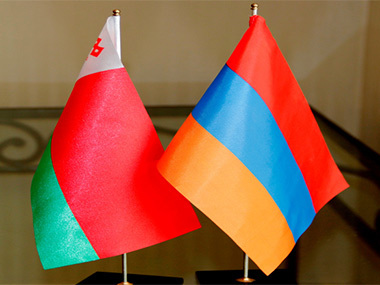


ArmInfo. Head of the General Department of Civil Aviation of Armenia under the Government of the Republic of Armenia received a delegation headed by the Minister of Transport and Communications of Belarus Anatoly Sivak on June 20. The sides discussed the possible expansion of air communication between Armenia and Belarus.
According to the press service of the GDCA, Sergey Avetisyan, speaking of direct air communication between the countries, welcomed the resumption of the flights of the Belavia Belarusian airline on the Minsk-Yerevan-Minsk route.
Anatoly Sivak, accompanied by Sergey Avetisyan and the general manager of Armenia-International Airports CJSC, Marcelo Vende, inspected the air harbor of the republic - Zvartnots international airport of Yerevan, got acquainted with the infrastructures and services provided at the airport.
Belavia Airlines on May 24 resumed flights Minsk-Yerevan-Minsk. As the press service of the airline told ArmInfo, the flight from Minsk to Yerevan will be performed twice a week: on Wednesdays and Sundays. Flight time - 3 hours 10 minutes. One way tickets - from 114 euros (from Minsk to Yerevan) and from 152 euros (from Yerevan to Minsk), including fees and charges. For round-trip flight - from 226 euros, including fees and charges.
To note, the day before the Minister of Transport, Communication and Information Technologies of Armenia Vahan Martirosyan and the Minister of Transport and Communications of Belarus Anatoly Sivak signed the Protocol on Amendments and Additions to the Agreement on International Road Transport dated September 20, 1997 between the Government of the Republic of Belarus and the Government of the Republic of Armenia. The agreement regulates the mechanisms for the implementation of interstate passenger / cargo transportation between the two countries. The need to introduce changes in it arose after Armenia joined the EEU. As a result of the implementation and signing of the Protocol, both participating states are exempted from road charges and compulsory authorization to enter, exit, transit when carrying out state transportation to the third country and from the third country through the territory of the member states of the EEU. This will lead to a simplification of the process of international cargo transportation between the two countries, a reduction in time and costs during the transportation of goods, as well as an increase in turnover. During the meeting of the ministers, issues of development and expansion of cooperation in the field of road transport were also discussed.